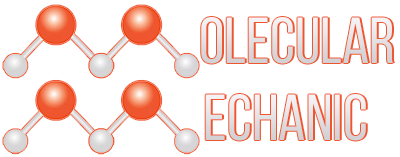One class I took almost every semester in graduate school was organic chemistry seminar. During the seminar, graduate students would present either a research talk, literature review, or problem set depending on their seniority. 3rd and 4th years students generally presented problem sets, and I’d like to use this platform to share the problem set I created a few years ago.
I focused the problem set on a hot area of research, C-H bond activation. C-H bond activation is attractive due to its intrinsically greener approach to chemical synthesis by enhancing atom economy. The difficulty is of course related to the stable nature of most C-H bonds. With a directing group and rhodium, however, many C-H bond activations have been achieved and applied for organic synthesis. I chose a few publications as templates for the problems I made. I chose to focus on rhodium as the catalyst due to its intrinsically higher value and more interesting reactivity than other transition metal catalysts. I’d like to point out, through this problem set, an important caveat I feel is not emphasized sufficiently in organic chemistry.
Organic chemistry is based on physical systems whose reactivity can always be rationalized by concepts like resonance or steric and electronic effects. However, taking complicated substrates and reaction conditions and trying to predict the products or mechanisms is a process which cannot fully be reduced to “follow the physicochemical evidence.” Methodology development in organic chemistry is still very much an empirical process. No chemist sits in their office and says, “I am going to design totally a new reaction and only need to try one procedure since I already understand all of organic chemistry.” Yet sometimes I really get this vibe from certain organic chemists. I think I can trace the development of this type of thinking to college level organic chemistry. There are two fundamental approaches to teaching introductory courses on organic chemistry, with a significant overlap in approach. One is the “memorize reaction types” approach which I experienced as an undergraduate. It’s flawed in that memorization can rapidly fade, but it also enables one to cover a lot of chemistry relatively quickly. I think the greatest strength, in retrospect, is that it teaches the lesson that many more exotic and complicated reactions require context to be fully understood in any real way. The second approach to teaching organic chemistry is to emphasize physicochemical principles and their application to prediction of reactivity. As a graduate teaching assistant of organic chemistry, I taught classes focused on the physicochemical approach. I do think it’s better for introductory courses with very basic reactions being taught. However, it can yield a false sense of understanding of anything beyond sophomore organic chemistry. At the highest level, I strongly believe there has to be some memorization of or exposure to exotic reactions to fully understand them. The variables in any single reaction can add up very quickly; acids/bases, heating methods, catalytic metals, ligands of metals, solvents, co-solvents, transfer agents, etc. all can have decisive effects on a reaction. Again, I’m not saying there’s many situations where, despite complicated reaction conditions, products can’t be predicted, but let’s try to stay humble as chemists. With that in mind, here’s my problem set and associated answers as separate files. Good luck.

